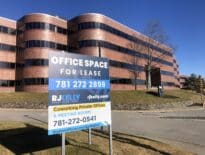
Cecelia Bolognia
Massachusetts is about to enter another year in which low housing supply and incredibly high demand means the continuation of the housing crisis. Across the commonwealth, housing costs continue to sit at stunning levels and many of our most vulnerable residents struggle to make ends meet. Bay Staters of all income levels are frustrated, but few feel the pain of this crisis more than our state’s low-income residents.
We at the Massachusetts Apartment Association recognize that the state – and nation – must use every tool in the toolbox to help underserved residents find safe, stable housing. That is why we are leading the way and were proud to have welcomed leaders from the U.S. Department of Housing and Urban Development late last month to discuss one of our country’s pivotal housing affordability solutions: the Section 8 Housing Choice Voucher program.
In the program, renters pay 30 percent to 40 percent of their total income towards rent. HUD funds the program and pays the remaining portion of rent – including up to 100 percent for very low-income renters – for residents.
The decades-old program currently serves more than 2.3 million households across the country, including over 16,000 here in Boston alone. Across the commonwealth, many of our members are proud to provide housing through Section 8, recognizing that residents need and deserve welcoming and reliable housing.
However, inefficiencies and red tape limit the effectiveness of Section 8 across the country and throughout our state. Rigid, duplicative regulations and a lack of funding make it increasingly difficult for housing providers to participate in the program, ultimately limiting the housing options available to low-income residents.
Extensive Paperwork Hurts Renters
One aspect of Section 8 that leaders in Washington, D.C. must address is the time it takes to lease a property.
While the standard leasing process typically involves touring a property, completing an application and signing the lease, the process of leasing a property under Section 8 takes far longer. Mountains of paperwork, wait times between unit inspections and rent negotiations cost time and effort that property owners, especially owners of just a few units, struggle to grapple with.
Locally, the prolonged and overregulated inspections process is one area that particularly confounds housing providers.
In Boston, housing authorities must inspect properties renting to Section 8 residents to ensure they meet a number of guidelines and standards.
While incredibly important, even housing providers with properties up to state code standards can completely fail an inspection for something as simple as chipped paint – not receiving their funding until another inspection is completed, which takes weeks if not months to schedule.
Until then, property owners and managers are left without the funding that keeps their apartment community viable and operational.
Larger Issue at Play
The inspection wait time issue in cities like Boston underscores a larger issue amongst local housing authorities: A lack of meaningful dialogue between municipal administrators and housing providers.
While property owners may be eager to communicate with local housing authorities, whether it is to reschedule an inspection or promote a property eager to host Section 8 residents, limited funding and staffing shortages make this challenging for housing authorities.
Increased funding from HUD to local housing authorities is paramount to ensuring property owners can collaborate with city officials in a timely manner and find housing for those who need it.
Here in the commonwealth, housing providers are in the business of housing Bay Staters and are proud to proactively promote policies like Section 8 that empower underserved residents and help us combat the housing shortage.
It is key that partners at all levels of government, from national to local, recognize this and work with us to realize the full potential of the Section 8 program as a tool to ease affordability challenges
Cecelia Bolognia is president of the Massachusetts Apartment Association, a division of the Greater Boston Real Estate Board.






